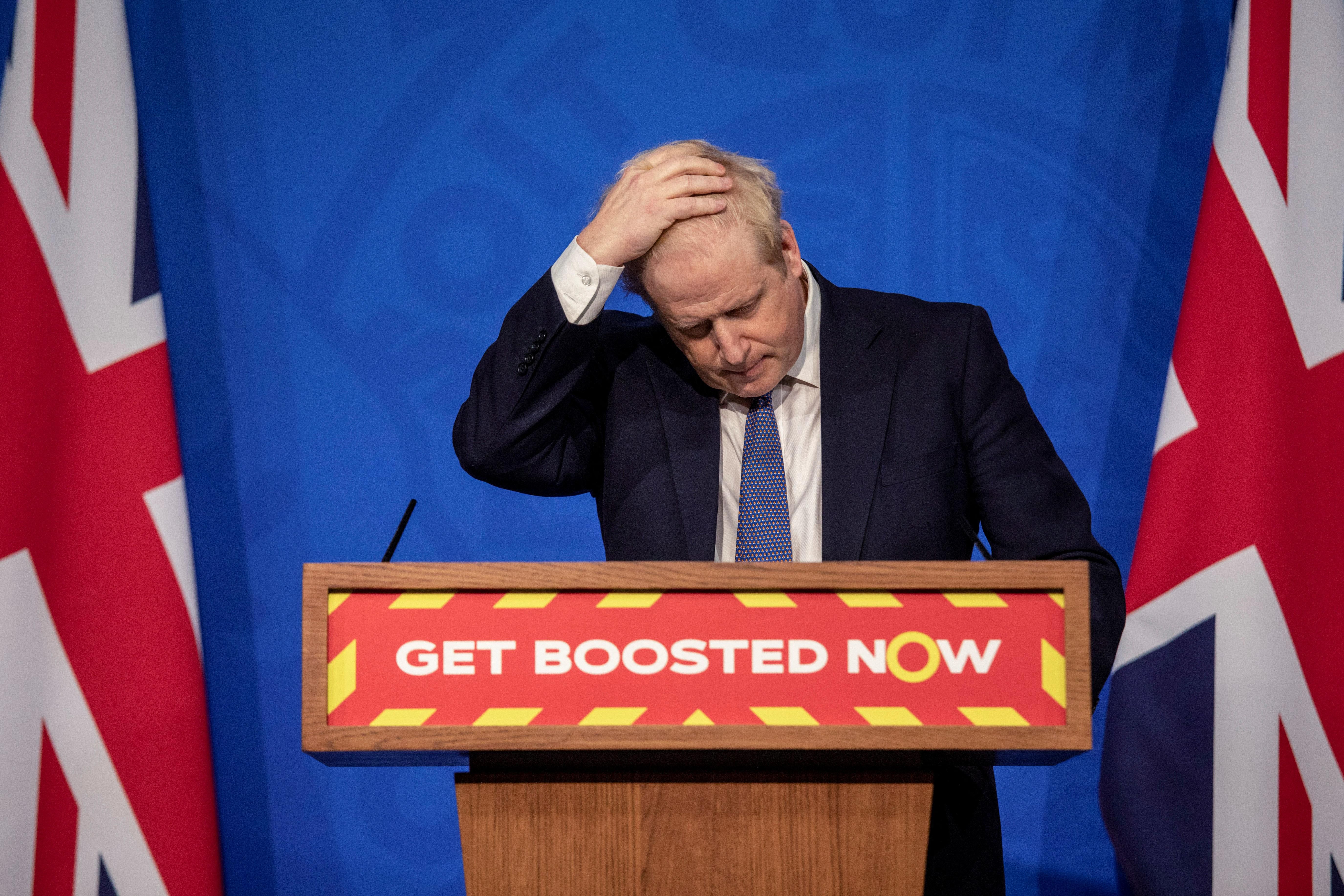“Bring your own booze.” It’s an old story: the damaging reveal that the political elite holds the public to a different standard than it holds its own leaders to. News emerged on Tuesday — courtesy of Dominic Cummings, the UK prime minister’s former political adviser turned bitter political foe — that Boris Johnson’s private secretary had invited more than 100 people to a "bring your own booze" party at the PM’s official residence… in the middle of a coronavirus lockdown in May 2020. Johnson and his wife have not denied they were there. To be clear, this is not the same party that his staff was caught on video laughing about during another lockdown over Christmas in 2020. Is the political ineptitude even more damaging than the hypocrisy? Either way, Johnson’s government is now in real trouble. The PM faces a parliamentary grilling on Wednesday, and may not survive a leadership challenge from within his Conservative Party later this year. At a time of bitterness over his handling of COVID and consumer pain from rising prices, this was not the story Britain’s prime minister needed.
(More) hypersonic North Korea. There aren’t many things the Democratic People’s Republic of Korea is good at, but its scientists do have a talent for building high-speed missiles. On consecutive days, North Korea launched what appeared to be two hypersonic missiles more advanced than the impressive weapon fired just last week, or the first hypersonic projectile Kim Jong Un tested in September. Tuesday’s version, fired into the sea about 435 miles off the country’s coastline, is estimated to have traveled at about 10 times the speed of sound and at a low altitude that makes it harder to detect than previous generations of missiles. Kim himself attended the Wednesday test in-person for the first time since the pandemic began. International reactions have been predictable; the US and Japan have condemned the launch, while China and Russia have called for an easing of sanctions to lower the diplomatic temperature. It’s an election year in South Korea, and we’re watching to see how the South Korean government responds to renewed pressure for inter-Korean talks.
China cuts Africa lending. China, Africa's top lender,
is taking a closer look at its lending policy on the continent. Xi Jinping
announced last November that China will cut overall lending to the continent by one-third until 2024, as many African countries risk default due to COVID-induced economic crises. In the future, Xi also wants to prioritize cash for small businesses and green projects over more big infrastructure stuff, a riskier investment that can leave Beijing holding a bigger bag when debts go unpaid. China has long been accused of luring African countries into a "debt trap" by lending them cash with no political strings attached, but with fine print that allows Chinese companies to take control of strategic infrastructure — like Uganda's
Entebbe airport — if they get stiffed. What some view as "predatory" lending by Beijing also enables corruption, with Kenya's famously overpriced
Nairobi-Mombasa railway as a glaring example. A defensive Beijing says that the world's poorest continent needs Chinese loans to build infrastructure, and that the IMF also gets tough on African governments. But needed or not, China’s investment strategy is becoming more cautious.
